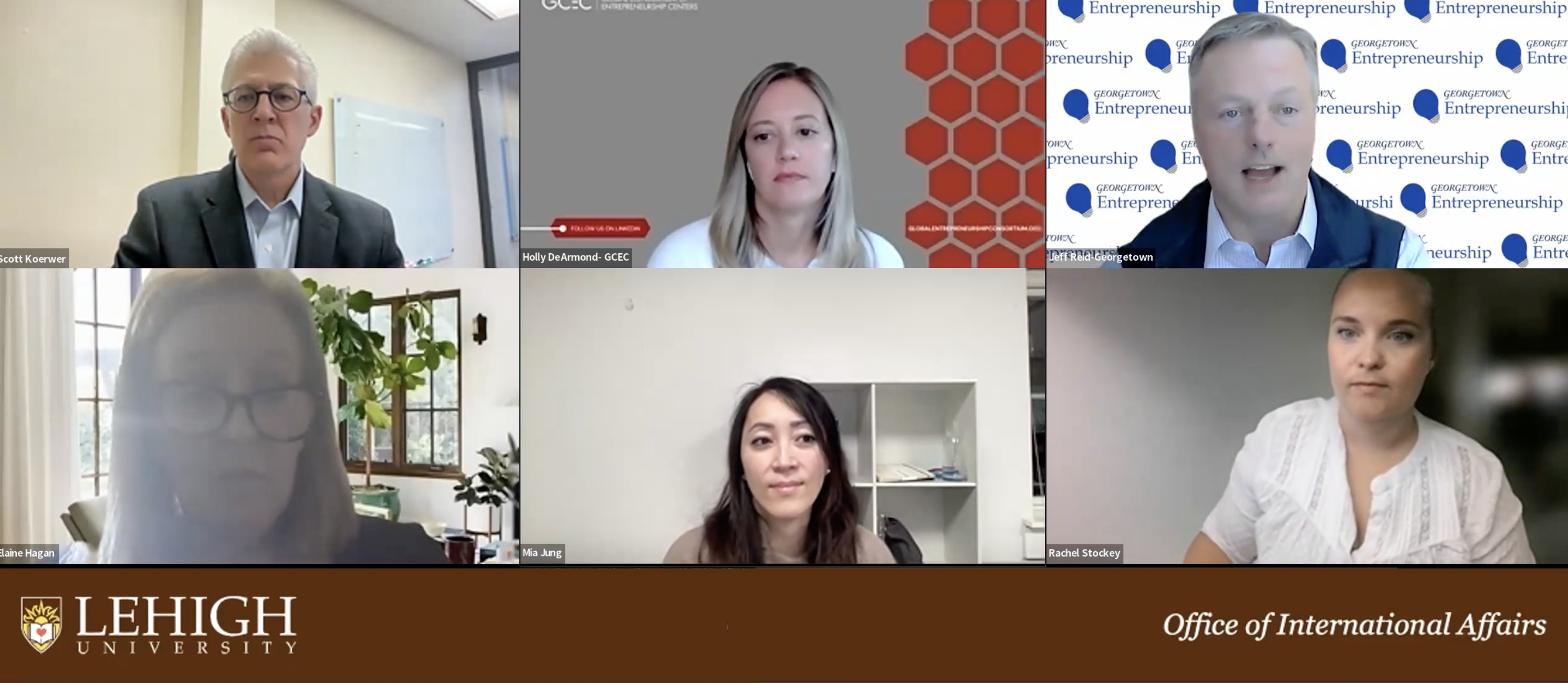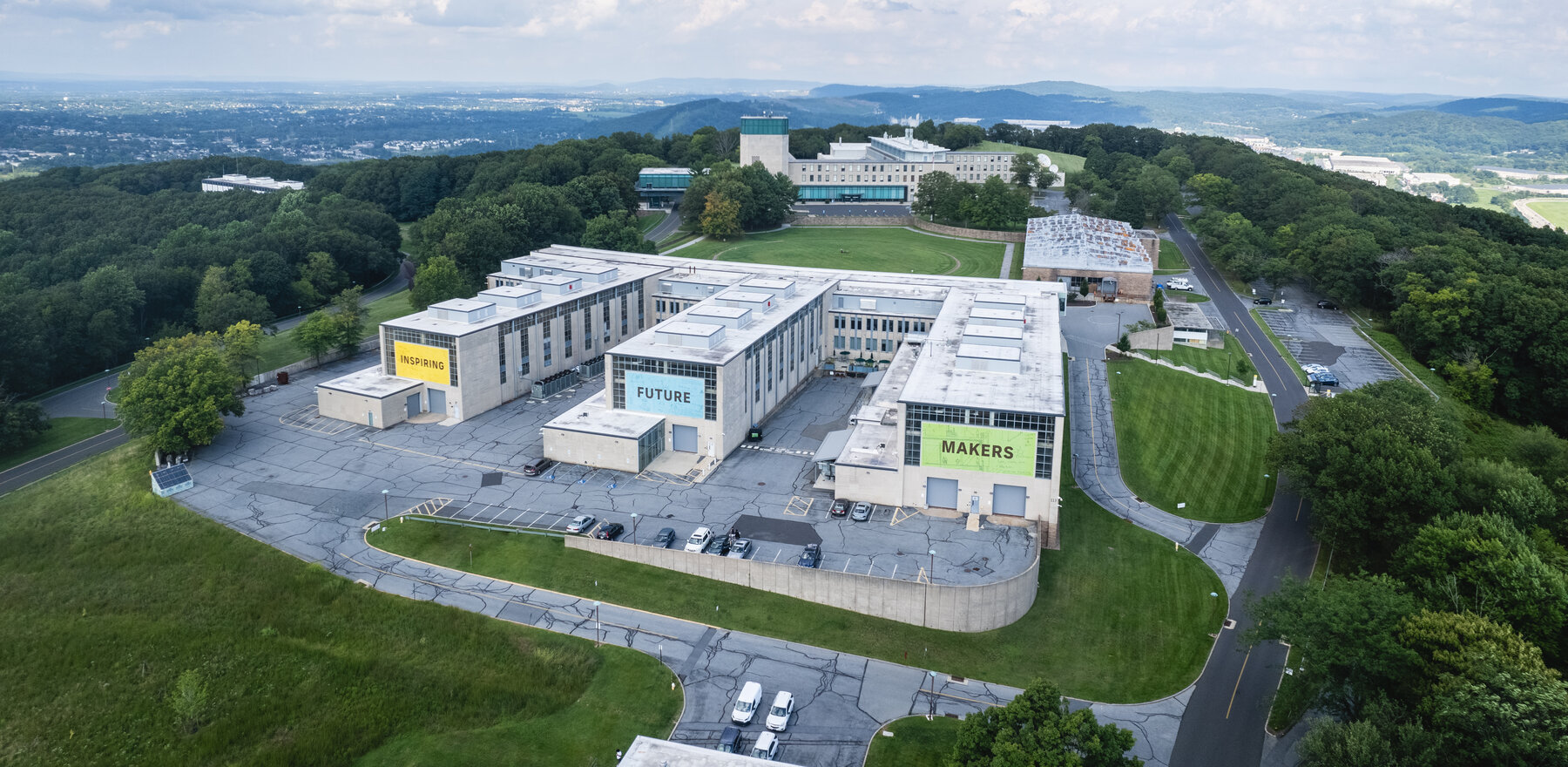Iacocca Institute Executive Director Scott Koerwer spoke during virtual event hosted by the Global Consortium of Entrepreneurship Centers
To navigate the increasingly complex challenges and opportunities of a global marketplace, it is crucial for student entrepreneurs and future leaders to develop a global mindset, according to Scott Koerwer, Executive Director of the Iacocca Institute at Lehigh University.
"Entrepreneurs have a number of things to consider on their entrepreneurial and leadership journey,” Koerwer said. “We try to ensure they have an introduction to basic skills and tools to help them develop a global mindset. We introduce our learners to systems thinking, various approaches to address problems, and a framework for planning.”
These were the tenets of the message Koerwer presented during “Global Mindset for Student Entrepreneurs,” a virtual event hosted by the Global Consortium of Entrepreneurship Centers (GCEC) on Nov. 17.
Held on the final day of Global Entrepreneurship Week, the event was moderated by Jeff Reid, Director of the Georgetown Entrepreneurship Initiative at Georgetown University. Other panelists included Mia Jung Elmertoft, Head of Leadership Development at Copenhagen Business School, and Rachel Stockey, Head of Entrepreneurial Skills at King’s College London.
Inspiring the Future Makers
 Koerwer tied the entrepreneurial mindset back to the concept of “Future Makers” as illustrated in Lehigh’s strategic plan, Inspiring the Future Makers. In particular, he cited the Iacocca Institute’s namesake, Lee Iacocca ‘45, who studied industrial engineering at Lehigh and held executive leadership roles at both the Ford Motor Company and Chrysler Corporation.
Koerwer tied the entrepreneurial mindset back to the concept of “Future Makers” as illustrated in Lehigh’s strategic plan, Inspiring the Future Makers. In particular, he cited the Iacocca Institute’s namesake, Lee Iacocca ‘45, who studied industrial engineering at Lehigh and held executive leadership roles at both the Ford Motor Company and Chrysler Corporation.
“We draw our inspiration from Lee,” Koerwer said. “He [understood] that things are becoming even more complex, so the question becomes, what are we doing to position entrepreneurial leaders to better handle the complexity and pragmatic approach to navigate the problem.”
To do this, the Iacocca Institute provides the framework, tools, and an agile mindset to focus entrepreneurial development, Koerwer said. This includes both a philosophical and pragmatic mindset, as well as a “systems-thinking view” that encourages student entrepreneurs to consider how all parts of their venture interact with each other.
“We ensure that we build a systems-thinking awareness and understanding into all of our programs, we believe the interaction of the parts creates a greater whole,” Koerwer said. “We believe all of our entrepreneurs have to understand what that means and how to build upon it.”
Managing Multiple Realities
Koerwer said a successful entrepreneur must understand how to interact with conflict and realize that not every problem can be approached the same way. He also stressed the importance of continuous communication about a strategic outlook, and ensuring entrepreneurs not lose track of their strategic framework and pathway as they navigate their challenges.
“The most successful entrepreneurs have the ability to hold multiple issues and realities in their head concurrently,” Koerwer said. “They have to plan a compelling future while shaping the beliefs, values, and attitude of their organization and their product or portfolio of services they're taking to market. But they've got to also be aware of what has already happened in the marketplace around them.”
Koerwer noted that Lehigh is a research university, which gives the Iacocca Institute the ability to link its entrepreneurial learners with faculty who are conducting research in their areas of interest. “It’s almost like an accelerant, if we can get the faculty engaged in the research of the entrepreneur,” he said.
Lehigh’s strategic plan underscores the university’s commitment to fostering entrepreneurship in a way that will impact local and regional communities and beyond. In addition to the Iacocca Institute, Koerwer acknowledged the work conducted by Lehigh’s Baker Institute for Entrepreneurship, Creativity & Innovation.
Reid praised the entrepreneurial initiatives at Lehigh and those of the other panelists’ institutions, adding, “It’s important for students to understand there is a global network and community around entrepreneurship available to them, and wherever in the world they might go, they can find entrepreneurs and people supporting entrepreneurs.”
Developing Skills and Mindsets
Jung Elmertoft discussed how the Copenhagen Business School recently revamped its student accelerator program to include a new personal development aspect, strategically shifting away from focusing primarily on the business and startup side, and instead also addressing the “more founder-centric side” of building a business.
“It's not like we are not focusing on the classical business development disciplines, but we are also adding this layer of personal development, and believing that the founders themselves are the material that needs to be cultivated and developed in order to create sustainable and resilient organizations,” she said.
Stockey said King’s College London puts the development of skills on the same level as – and, in many cases, above – its focus on startup outputs.
“This isn't about the skills required to be a successful entrepreneur,” she said. “We come at this in terms of extracting the skills that entrepreneurs use; the way that they think and the way that they behave. And we teach that as a separate framework to all of our students, regardless of whether they want to be an entrepreneur or not.”
The event was part of GCEC’s monthly “Virtual Connections” webinar series. Visit here for more information about future events in the series.
